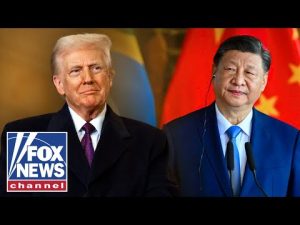It seems Michelle Obama is once again in the spotlight, this time with a new book titled “The Look.” Despite her recent complaints about the burdens of fame, she paradoxically ventures deeper into the limelight. This apparent contradiction raises a pivotal question: Is this a genuine aversion to celebrity culture, or is it another chapter in a well-crafted narrative designed to maintain relevance and influence?
Michelle’s latest book claims to delve into themes of diversity, inclusion, and personhood, wrapped in the guise of a fashion statement. Yet, critics argue that this is more than just a discussion about clothing; it’s a continuation of a persistent cultural discourse steeped in identity politics. The focus on what individuals wear as a form of “armor” against societal challenges blends self-empowerment with a subtle narrative on identity, a motif common in her public persona.
Some observers suggest there is a sense of being “gaslit” by this narrative. In a society where many significant and influential figures are and have been black, the narrative espoused can feel misleading to those who remember a different time. From the height of Oprah Winfrey’s reign as the most adored woman in America to the dominance of figures like Beyonce and Michael Jordan, the argument that African Americans, including women, are unseen can seem disingenuous or oversimplified.
This focus on identity politics, particularly among prominent black women, echoes a broader trend where intersectionality becomes a central theme. While addressing the intricacies of race and gender can be meaningful, there is concern that it often shifts the conversation from substantial policy discussions to superficial narratives centered on personal identity. For many Americans, these repeated political exercises feel like an endless spiral of self-reference rather than solutions to real issues.
In past elections, there’s been a noticeable shift in voter behavior among black men, indicating a growing fatigue with the relentless focus on identity politics. Michelle’s iconic remark about waking up every day in “a house built by slaves” highlights these tensions. While this statement is rooted in historical reality, critics argue that it neglects the symbolism and significance of her position within that same White House, one of the most powerful roles held globally. The challenge, then, is to move beyond the simplistic narratives and engage in a more nuanced discourse that acknowledges the progress made while recognizing the complexities of the issues at hand.







